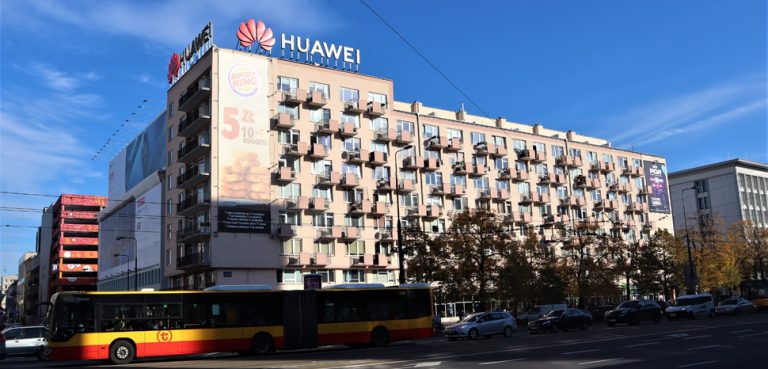Deglobalization is a somewhat imprecise term whose meanings can be subject to dispute. However, it can be understood to be on the opposite side of the spectrum to globalization, and is generally associated with a reduced interdependence between countries, which may diminish the movement of goods, capital, and services as well as the flow of people between them. Deglobalization is frequently viewed through an economic lens, with strong indications that economic globalization had already reached a peak in the late 2000s to early 2010s, increasing the relevance of protectionist policies in the years preceding the COVID-19 pandemic. However, deglobalization can also cover a multitude of other social and political domains in addition to the economic realm. It is actually on the cultural and political fronts where the fallout from the COVID-19 pandemic is likely to bring about major transformations and perhaps even a (temporary) reversal of globalization trends.
One of the sure-fire signs of the gauntlet being thrown down at political globalization is a backlash against migration. In this regard, in part due to the vastly different rates of vaccinations between the developed countries in Europe and the less affluent ones from outside the continent that are often the source of economic migrants and refugees, it is projected that populist parties in Europe may be well-positioned to pursue a nativist domestic agenda, at least over the next year. Such parties would be likely to advance the argument that migrants are COVID-19 vectors, potentially causing the pandemic to be prolonged, and thus will push mainstream politics toward a tightening of border controls and the introduction of further limits on migration. In addition, the COVID-19 pandemic has brought about a paradigm shift with regard to the migration patterns within the EU between “old” and “new” EU member states. For instance, in 2020 significant numbers of Romanians, Bulgarians and Lithuanians returned to their home countries from their places of residence in Western Europe, marking a major reversal in terms of the dominant direction of migration epitomizing the last 30 years, which saw Western European states as the default destination countries. It is too early to make any long-term predictions with a reasonable level of certainty, but if quite a few of these returning migrants reestablish themselves on a permanent basis in their home countries, this could help ameliorate some of the brain drain and population shrinkage issues affecting Central & Eastern European countries. In turn, such a scenario may see these countries’ economic competitiveness improve, reducing the incentives for them to open their doors to qualified migrants from outside of Europe. In a sense, the increased ethnic homogeneity in both Western and Eastern Europe, which has been a byproduct of the COVID-induced shifts in migration dynamics, could in itself be characterized as a sign of deglobalization within Europe.
Furthermore, while COVID-19 has been a mixed bag in terms of boosting the electoral fortunes of nationalist-populist parties, in politically liberal countries where the right-wingers have actually backed a strict approach towards containing the virus, such as in Sweden (exemplified by the Swedish Democrats) and in Belgium (the advocates of such an approach being Vlaams Belang), these political organizations’ electoral prospects seem to have noticeably improved. Thus, in the immediate post-pandemic years it is possible that even in some of the historically migrant-friendly countries in Europe there will be sustained opposition to generous asylum policies.
Another political dimension of deglobalization concerns the increase in the importance of nation-states and the role of the state level in making decisions. The COVID-19 pandemic, especially in its initial stages, has seriously challenged the conventional wisdom that the controlled pooling of sovereignty, allowing supranational bodies such as the EU to represent their member states in various areas, necessarily results in more expeditious decision-making and enables nation-states to be proactive rather than reactive in the face of global crises. Moreover, the general public’s support for lockdowns in most European countries as well as the competent actions in handling the pandemic displayed by countries such as New Zealand and Australia (that have not been averse to protecting the health of their citizens even at the expense of largely closing themselves off from the outside world) have arguably attested to the continued relevance of a strong and decisive nation-state in situations when the world community finds itself in the throes of a global issue with wide-ranging implications. The problems faced in countries such as Sweden due to the seeming lack of a legal mandate (disputed by some scholars) accorded to the government to impose a tight lockdown, and the slow tempo of vaccinations in states such as Germany, which has been blamed on the EU, have only served to buttress the arguments of the anti-globalists who are concerned about the emaciation of the nation-state.
A factor paving the ground for deglobalization also concerns the condition in which the major world powers find themselves. Hegemonic stability theory links the openness of the international economic system to the preponderance of the most powerful country, which in recent history has been the United States of America. Conversely, deglobalization accompanies a decline in power of the strongest state, though not necessarily in absolute terms, but relative to other states. If such decline is present, a reversal of globalization is the expected result. As a direct consequence of COVID-19, the USA has had to contend with a serious health crisis and its economy contracted at a pace not seen since the Second World War. The perceived flaws in the US approach to COVID-19, with the tackling of the disease appraised as a “Chernobyl moment” for the country, have also contributed to eroding trust in US leadership in international circles. Furthermore, the far-reaching impacts of the COVID-19 pandemic on many spheres of life in the United States may in part explain President Joe Biden’s desire to embark upon a course of partial retrenchment in international affairs, retaining elements of Donald Trump’s agenda.
As for emerging great power China, while its economy seems likely to bounce back more rapidly from the COVID-19 setback compared to the USA, its global reputation has been tarnished. China’s popularity among the general public in European countries has reached a historic low due to worldwide criticism of its response to the pandemic, specifically the Chinese authorities’ unwillingness to be sufficiently transparent about the virus during the early stages of the outbreak. A lack of trust in the dominant players whose conduct sets the tone for the nature of the nation-state interactions within the international system is more likely to encourage other countries to keep a low profile and steer them toward isolationism. On top of that, the war metaphors employed by political figures for the purpose of encouraging citizens to band together against the virus as well as the proliferation of conspiracy theories pertaining to the supposed Chinese agency in letting COVID-19 loose have probably started to peel away at the popular depiction of China as a still sleeping dragon, seemingly disinterested in shaping world affairs through non-economic means. China has historically been trying to portray itself as having mainly defensive priorities in global governance, but the fall-out from the pandemic has dealt a blow to Chinese nation-branding efforts, and arguably drawn renewed attention to the country’s highly controversial human rights record.
In essence, the COVID-19 pandemic has re-empowered the nation-state and due to practical necessities prompted governments steeped in political liberalism to oppose the ‘open borders’ philosophy. It has also weakened the United States’ economic fortunes, potentially affecting the calculations of the Joe Biden presidency with regard to the pursuit of interventionist policies, and has reduced the ‘soft power’ standing of the other contender for great power status in China. All of these COVID-induced effects seem to have provided fertile soil for the unleashing of new currents favorable to deglobalization, at least in the short-term.
The views expressed in this article are those of the authors alone and do not necessarily reflect those of Geopoliticalmonitor.com




